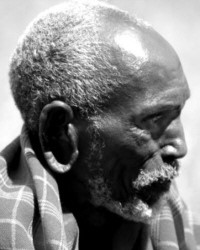Temi in Tanzania

Photo Source:
Anonymous
|
Send Joshua Project a map of this people group.
|
| People Name: | Temi |
| Country: | Tanzania |
| 10/40 Window: | No |
| Population: | 65,000 |
| World Population: | 65,000 |
| Primary Language: | Temi |
| Primary Religion: | Ethnic Religions |
| Christian Adherents: | 10.00 % |
| Evangelicals: | 1.50 % |
| Scripture: | Portions |
| Ministry Resources: | No |
| Jesus Film: | Yes |
| Audio Recordings: | Yes |
| People Cluster: | Bantu, Central-Lakes |
| Affinity Bloc: | Sub-Saharan Peoples |
| Progress Level: |
|
Introduction / History
The Sonjo call themselves Temi. The Temi are a traditional people who live in the midst of a Maasai region in the northwest corner of Tanzania. The Temi people live in area 30 – 40 miles west of Lake Natron, in Northern eastern Tanzania.
What Are Their Lives Like?
Like the Maasai, the Temi continue to hold on to traditional beliefs, customs and lifestyle. They still build their round one-room houses of sticks with thatch roofs. The people continue to wear "shukas," colored cloth worn in a toga style, much like the Maasai.
They maintain a warrior class consisting of young men who have gone through the rites of passage. In the past the Sonjo people have been known for their conflict with the Maasai, though at present, there appears to be peace. Some villages, nevertheless, still boast an impressive gate, which previously connected a protective wall around the inner village to protect them from the Maasai.
What Are Their Beliefs?
Most Slovaks are traditional Catholics and many are atheists. Others adhere to religious rituals and New Age practices to fill the spiritual void.
What Are Their Needs?
Those in the diaspora need to learn a new language and how to deal with their daily needs. It is harder for the elderly among them to adjust.
Prayer Points
Pray for workers to go to them that have skills in medicine and water purification.
Pray The Lord give them a heart of possession to take care of the purifiers and to understand the importance of drinking clean and safe water.
Pray that soon Temi people will disciple others in the ways of Christ.